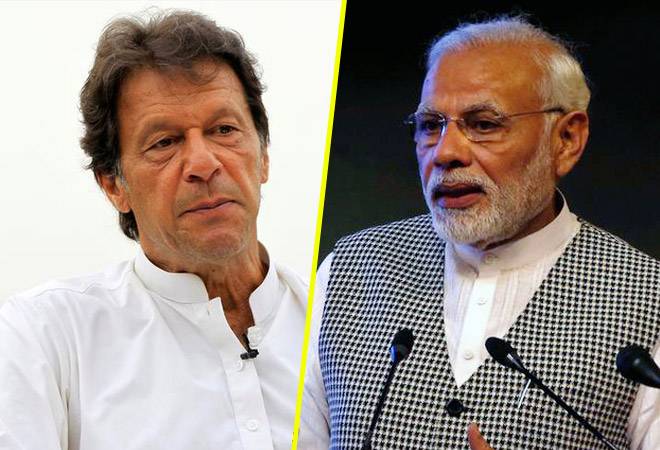Were brutal killing of three Jammu and Kashmir policemen and the release of stamps glorifying slain terrorist Burhan Wani as a “freedom icon” reasons behind India’s decision to call off a meeting between External Affairs Minister Sushma Swaraj and her Pakistani counterpart Shah Mahmood Qureshi in less than 24 hours after confirming it? Even if they were reasons, it would be wrong to rule out domestic political factors that appears to have triggered adrenaline of the Narendra Modi administration to cancel the meeting which was scheduled to be held on the sidelines of the UN General Assembly in the last week of this month. It is well known that as elections are drawing closer, the BJP-led NDA government is sparing no efforts to invest money and time to capitalize on surgical strike that Indian Army had launched across Line of Control to neutralize terrorists and their launching pads in September 2016.
It is at this time the Modi government took political risk to respond to Pakistan Prime Minister Imran Khan’s September 14 dated letter in which he requested for a meeting between foreign ministers of the two countries. A majority of the BJP constituents are dead against any overture with Pakistan because of the latter’s visceral anti-India attitude and tacit role in cross border terrorism. In the wake of brutal killing of J&K policemen and release of 20 postal stamps on Hizbul Mujahideen terrorist Burhan Wani portraying him as freedom fighter, political watchers say the Modi government could have ill afforded to play with the sentiments of its supporters, especially when elections are not far away.
In fact, Pakistan sponsored terrorism and illegal migrants from Bangladesh are key emotive issues for the BJP. The party will do little to put them under the carpet as they help it generate political hysteria in the country. Particularly, any attempt to bring Pakistan on the talking table without eliciting assurance from Islamabad on the terrorism front may have given BJP’s political rivals a handle to target the NDA’s government’s policy. Thus, by calling off India-Pakistan foreign ministers’ meeting, the incumbent establishment at the Centre managed to save itself from being roasted mercilessly by critics and people alike.
Rafale Deal: Ravi Shankar Prasad attacks Rahul for levelling allegations against Modi
But that doesn’t mean Pakistan is not responsible for sabotaging the proposed India-Pakistan foreign ministers’ meeting which otherwise, could have served as an opportunity to normalize tense relations between the two neighbours. Question is raised that if Prime Minister Imran Khan is so serious about improving Pakistan’s relations with India then why his government has allowed release of 20 special postage stamps which carry captions such as: ‘Burhan Wani(1994-2016) freedom icon’. Clearly, it shows that he is not carrying independent thinking political mind on his shoulder. Instead, Imran Khan has begun to play dirty games of his masters from Pakistan Army. If it is so then the Pakistan Prime Minister should stop dreaming of turning Pakistan into a new Pakistan, a slogan which he had played to the hilt during the campaign for the July 25 elections. On the ramparts of fundamentalism and terrorism, he can’t build a liberal Pakistan nor can he expect any significant political or economic embrace from the international community.
Modi government’s unfolding emergency through back door
Just two-day ago, the US’ Department of State in its report said that though Pakistan criminalized terrorist financing through the Anti-Terrorism Act (ATA), but its implementation remained uneven. Earlier in June, the Paris-based Financial Action Task Force (FATF) placed Pakistan on its grey list of countries that could face sanctions if they failed to prevent terrorists from collecting funds within their geographical domain. In fact, the FATF had expressed its concern that Pakistan failed to plug major gaps in the implementation of UN Security Council’s led sanctions on ISIL (Daesh), Al Qaeda, Lashkar-e-Taiba and its affiliates. The US report held Pakistan accountable for “not effectively prohibiting” terrorist’s outfits from raising funds, nor being denied financial services.” Such reports go contrary to Pakistan’s overall interests. But for this, Islamabad and its policies alone are responsible. India would not have baulked at the foreign ministers’ meeting, had the latter not shown its anti-India biasness. Nonetheless, for the Modi government, killing of policemen by Pakistan sponsored terrorists and release of postage stamps on Burhan Wani have served one more opportunity to bash Pakistan during election time.
Disclaimer: The opinions expressed in this article are the personal opinions of the author.


















